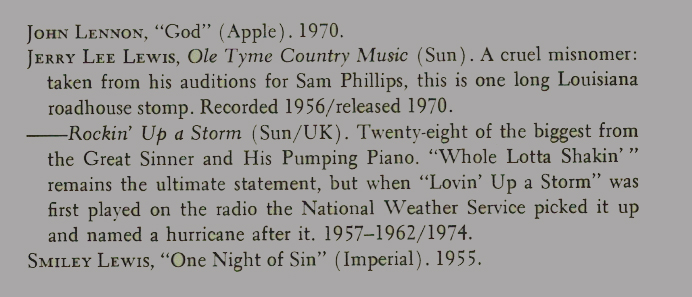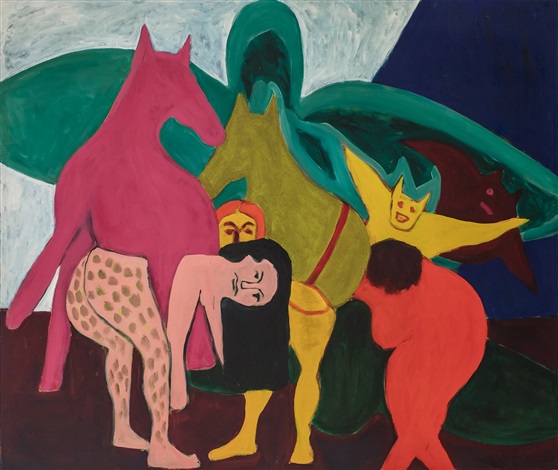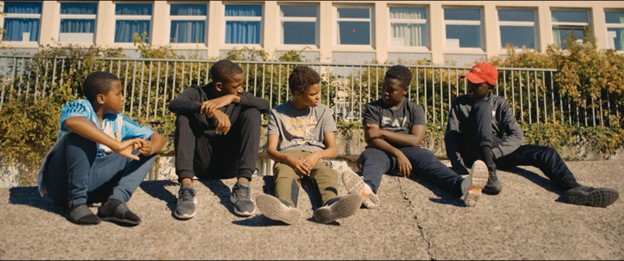European cinema “has still got it” per guest essayist Emilie Bickerton in last week’s Times.[1] Like her, I’m lifted by the prospect of new films by the Dardenne brothers and Mia Hansen-Love. Other films/directors she cites sound lively too. Yet Ms. Bickerton may have missed the most galvanizing French cinema of this moment. When a worldly friend heard I’d been to Paris last summer, he commended “wild” new movies based on life in banlieues on the edge of the city. (“You’ll want to head right back to see what you missed!”) The movies that moved him were made by filmmakers in Kourtrajmé (slang for “court métrage,” or “short film”)—a collective that includes Romain Gravas (son of Costa-Gravas) who has directed two fast and furiously French features, The World is Yours and Athena (both available now on Netflix). If you’re ready to catch Kourtrajmé’s New Wave, though, I’d start with Ladj Ly’s Les Miserables.
Culturewatch
Tool of The People: Q&A with Ladj Ly
Les Miserables
Sight and Sound‘s Elena Lazic interviewed Ladj Ly soon after the UK release of Les Miserables in 2020.
Most people discovered you through Les Misérables, but you’ve been making films for a long time. Can you tell me about your work with the collective Kourtrajmé?
Kourtrajmé is, before anything else, a group of friends. We all grew up together. We’ve known each other since kindergarten or primary school.
The collective was formed in 1994 with the ambition to make our own films. I joined in 1996. I was close friends with Kim Chapiron as a kid. I started as an actor in his films, and then at 17, I bought my first video camera and began filming my neighbourhood.
Nowhere Else to Go
…The second-to-last night (the penultimate night on Earth), we were having dinner at their new place, the one we’d been trying to move into for months now. They showed me their books, their paintings (haunted self-portraits of a girl under water, or a girl lost in the dream of her own beauty, her own schizophrenia, an enclosed and infinite pain: but also they were no longer self-portraits, they were portraits of a dead girl, a girl who’d been dead for aeons, who’d escaped or gotten lost through a trapdoor in the basement of time, who’d…). They gave me jewelry to wear. I had a vision of the two of us, of future afternoons in the living room: languid afternoons, erotic afternoons in which nothing happens. They sang Leonard Cohen’s “I’m Your Man” for me (a prefiguration of their transition), serenading me, and afterwards they made me cum, fingering me vigorously and telling me what a whore I was, or am. This is all for my pleasure, they said. Your pleasure doesn’t matter. I moan. You’re just a fucktoy, a doll I bought at the store, you exist to be fucked, you’re pure sex and nothing else, you don’t have a soul, you don’t have a brain, you’re nothing but degraded lust, nothing but holes to be filled by so many cocks, a mouth to be used by so many pussies, a bimbo, a bitch, etc. They suck on my tits with a sexual hunger I’ve never seen before, and I explode.
Denise
a writer is [someone] for whom writing is more difficult than it is for others.
Thomas Mann
…..Inside the café, from left to right, 8:20 AM. Caucasian male, red hair, red beard, green sweater, in his 20s, working on a lap top. Asian woman, about 50, wide black-framed glasses, red quilted jacket, underlining in red a book about “Power.” Young Asian man, charcoal grey sweater, ear buds, working on his lap top. Indian/Pakistani male, 30-ish, horn-rimmed glasses, heavy white sweater, laptop. Caucasian man, 50-ish, grey hoodie over black racing cap, on his laptop too.
…..All silent.
…..All alone.
…..Working toward what they could not know.
…..
I am often interested in why people write and what it is they choose to write about.
Cara Mia
Irene Cara was the first Latina I saw in movies and television that not only looked like my family & friends but was also in my age range. (A pretty peer? Who could act, sing and dance? The crush was instantaneous.) I well remember going with my younger male cousins to a screening of Aaron Loves Angela in da city. The movie was about the tensions between Black and Latin folk in El Barrio which became exacerbated by the budding romance between Kevin Hooks and Cara. The on screen friction quickly spread to my primarily Black & Latin — what else? — audience with racial insults being hurled back and forth with increasing ferocity throughout the theatre. I quickly informed my cousins that when — not if but when — the shit went down whatever side was winning the fight, that’s the side we’re fighting for until we reached the exit doors.
Jerry Lee Lewis: An Appreciation
“One of the Most Talented Human Beings To Walk on God’s Earth”
Killer Storm

What’s above is the entry on Jerry Lee Lewis from Greil Marcus’s annotated discography to the collection of essays he edited: Stranded: Rock and Roll for a Desert Island.
Dealing With Dave Chappelle
Saturday Night Live isn’t having a great season. A largely new cast lineup turned out to be a limp imitation of the golden years, and the ratings have plummeted. If SNL is to survive, it must recover its edginess, and one way of doing that is to prick liberal pieties. No comic has a better aim when it comes to this mission than the host of last week’s show, Dave Chappelle.
In the annals of black transgressive comedy, Chappelle is distinct. His best work is profoundly insightful, in keeping with the masters of this tradition, such as Richard Pryor, Eddie Murphy, Chris Rock, and Jerrod Carmichael. What makes Chappelle stand out in this storied company is his sadism.
“Folk Music” (Amplified)
Greil Marcus’s new book on Bob Dylan opens with a Dylan quote—“I can see myself in others.”—from a loose press conference with journalists in Rome in 2001. I recall listening to audio of that same rap session on YouTube and noticing another line that’s not at odds with the one that jumped out at Marcus. Dylan responded to a convoluted question with his own humorous query: “Am I an idiot?” he asked. This wasn’t a mid-60s prickly (Neuwirthy?) tease. While Dylan was playing to the crowd and encouraging them to laugh with him, he wasn’t coming hard at his questioner (who seemed to take his soft goof well). What struck me was that Dylan, even though he was only acting as if he was clueless, seemed entirely alive to how it might feel to be hopelessly at sea mentally. After all, he’s known what it was to be an unworldly Midwesterner at a Village party with an older generation of haute-bohos. (“I was hungry and it was your world.”) And that, in turn, puts him a thousand thought-miles away from heads who act like they’ve been tenured since they were ten.
“New York: 1962-1964”

“New York: 1962-1964 explores a pivotal three-year period in the history of art and culture in New York City, examining how artists living and working in New York responded to their rapidly changing world, through more than 180 works of art—all made or seen in New York between 1962-1964.”
Twin Flames
Em says they see everything in advance, by a year, or two. I lost them in 2020, but I knew in 2019. I woke up in the middle of the night and texted my mom, take dad to the hospital, he’s having a heart attack, and I saved his life. After the IPCC report in 2018, when everyone kept going on with their lives as normal, that’s when I began to experience prophecy, etc. I believe my delusions operate on this level, too, outside of linear time. At worst, delusion is only what is not-yet, but will one day come true, since everything that comes from the heart will one day come true, at the end of time, the end that approaches every day.
Christy Martin: A Survivor’s Story
On November 17, 2001, WBC world junior welterweight champion Christy Martin outboxed Lisa Holewyne over ten rounds at Mandalay Bay casino in Las Vegas, which was unusual because Martin was a self-admitted slugger, not a boxer. At the weigh-in, when Holewyne had wished her good luck, Martin answered, “Good luck getting knocked the fuck out.”
On November 25, 2017, the two women were married by a justice of the peace in Austin, Texas, where they currently live.
The marriage is one of the happier events chronicled in Fighting for Survival, by Christy Martin and Ron Borges. The book is subtitled “My journey through boxing fame, abuse, murder, and resurrection.”
The Girl Who Fell to Earth
One day, I’ll come out of my shell, I’m sure,” says Aldous Harding. She does not seem to be speaking to anyone in particular; her words seem directed mostly at herself. A few minutes later, she repeats those exact words as if she hasn’t said them before. Aldous Harding—real name Hannah Harding; her stage name is presumably taken from the author of Brave New World and even now produces a brief mental ripple of confusion every time I say it out loud—is from New Zealand, and this is the second time I have seen her. My dear friend Andi is with me; this is the third time she’s seen her. Harding is just that sort of singer, the kind you wish you could see every year.
The War on Drugs: The Early Years
(Based upon actual events,)
In the spring of 1964, even a BrandX University senior as hip as me, who had been one of six students not to walk out on Cecil Taylor’s first set in Grubb Hall, did not know anyone who smoked marijuana. So it was a shock when several undergraduates, – primarily Fine and Theater Arts majors, to be sure – were swept up in raids which extended to Cambridge.
A War Is Coming
I
. A scream on the border of consciousness. I feel the desire to vomit. You only talk about yourself, they say. I want to say something tender, but something else comes out (desire, vomit). They hang up on me. That’s the first time they’ve done something like that. The time between us grows unbearable. I wonder how you can go, in a month, from ineffable love to even more ineffable estrangement. You feel an instant and incandescent recognition, and then: a slow heatdeath of the heart. I go to the bathroom, look at myself in the mirror, hit myself in the face until the room starts to spin, dry heave into the toilet, reapply my eyeliner.
Venturing Forth
Fantasy #1
Maskless. Finally. Now I look like everyone else on the street, because only old people wear masks around here. Lunch with friends I haven’t seen since the day the earth stood still. They’ve aged—but not me. The cautions and coverings haven’t changed my face at all. Like Broadway, I’m back.
Detransition, Corpse
. What would it mean to detransition?
Having a Ball on Tiemann Place (the Tom DeMott Way)
Pallie Greene – the kid from our hood who dunked at our block party (above) – began playing ball late just like my late brother Tom, who didn’t get into the game until Jr. High school. Might be a life-changer for Pallie though. It sure made a difference to Tom. When I think about how he came to make his life on Tiemann Place (as he worked at the 125th St. Post Office), aesthetics and politics of b-ball – along with people’s soul musics – are keys to his story. Tom was out there with Pallie – a spirit, not a ghost! – as our hood re-upped on the tradition he invented (with the West Harlem Coalition). The 34th Annual Anti-Gentrification Street Fair jumped off on a proud Saturday in September.
Bruce Dern Loves Last Ride
There are three things to understand first. My red phone. My second cousin Irving Sussman. My position in American letters.
